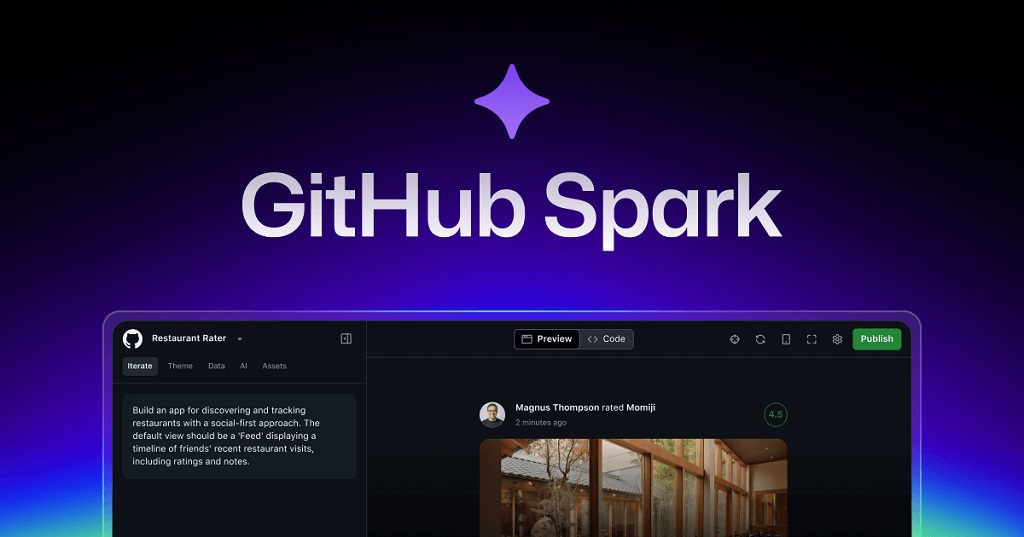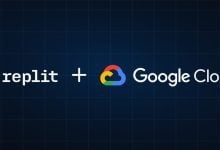
GitHub Spark, launched on July 24, 2025, is revolutionizing app development. Powered by Anthropic’s Claude Sonnet 4 model, this tool lets users create full-stack AI apps using natural language prompts. Now in public preview for Copilot Pro+ users, GitHub Spark eliminates complex coding barriers. It enables developers and non-coders alike to build and deploy apps with ease, transforming ideas into reality in minutes.
Key Takeaways
- GitHub Spark allows app creation via natural language, no coding required.
- Powered by Claude Sonnet 4, it supports full-stack development.
- Available in public preview for Copilot Pro+ subscribers.
- Simplifies backend setup, hosting, and AI integration.
- Aims to democratize software creation for over 1 billion users.
What Is GitHub Spark?
GitHub Spark is an AI-native tool within GitHub Copilot. It translates plain English prompts into functional web applications. Launched at GitHub Universe 2024, it targets both seasoned developers and beginners. Users can describe app ideas, and Claude Sonnet 4 generates frontend, backend, and AI functionalities. The tool handles databases, hosting, and authentication automatically.
This innovation reduces development time significantly. A 2025 GitHub survey reported 78% of developers want simpler app-building tools. GitHub Spark addresses this demand, making software creation accessible to non-technical users.
Contents
Core Features of GitHub Spark
| Feature | Description |
|---|---|
| Natural Language Input | Build apps by describing ideas in plain English. |
| Full-Stack Generation | Creates frontend, backend, and database setups. |
| AI Integration | Adds AI features from models like Claude, OpenAI, and xAI. |
| One-Click Deployment | Publishes apps instantly to desktops or mobile devices. |
| Collaboration Mode | Allows real-time teamwork and app remixing. |
How GitHub Spark Works
Users start by typing a prompt, like “Create a movie recommendation app.” GitHub Spark processes this via Claude Sonnet 4, generating a full-stack app. Developers can tweak code manually or refine prompts for adjustments. The tool offers visual previews and tracks revisions, showing which AI model was used.
Steps to Create an App
- Enter a Prompt: Describe the app in natural language.
- Select AI Model: Choose from Claude Sonnet 4, GPT-4o, or others.
- Preview and Edit: View live previews and modify code or prompts.
- Deploy: Publish with one click to any device.
- Share: Distribute apps with customizable access controls.
The Power of Claude Sonnet 4
Claude Sonnet 4, Anthropic’s latest model, drives GitHub Spark. It excels at coding tasks, scoring 93.7% on HumanEval for Python function accuracy. Compared to Claude 3.5 Sonnet, it improves complex codebase navigation by 10%. Its hybrid reasoning handles multi-step tasks, making it ideal for app development.
Why Claude Sonnet 4 Stands Out
- Precision: Follows nuanced instructions with minimal errors.
- Speed: Processes prompts twice as fast as Claude 3 Opus.
- Context Awareness: Understands project patterns and conventions.
- Tool Use: Integrates with APIs and external services seamlessly.
Who Can Use GitHub Spark?
GitHub Spark targets a wide audience. Developers benefit from faster prototyping. Non-coders, like entrepreneurs or hobbyists, can create web applications without learning to code. A 2024 GitHub report noted 65% of non-developers want to build apps but lack skills. GitHub Spark bridges this gap.
Target Users
- Developers: Streamline coding with AI assistance.
- Business Owners: Build custom tools without hiring developers.
- Educators: Create learning apps for students.
- Hobbyists: Turn creative ideas into functional apps.
Impact on App Development
GitHub Spark accelerates software development. Traditional app creation takes weeks or months. With Spark, it’s minutes. A 2025 study by iGent found Claude Sonnet 4 reduced app development time by 45% compared to manual coding. This speed empowers startups and small businesses to compete with larger firms.
Benefits for Developers
| Benefit | Impact |
|---|---|
| Speed | Cuts development time by up to 45%. |
| Accessibility | Enables non-coders to build apps. |
| Scalability | Supports complex, full-stack projects. |
| Collaboration | Facilitates teamwork and app sharing. |
Democratizing Software Creation
GitHub aims to reach 1 billion developers by 2030. GitHub Spark is a step toward this goal. By removing technical barriers, it opens app development to non-coders. Posts on X highlight excitement, with users calling it a “game-changer” for software creation. This democratization could reshape the tech industry.
How It Empowers Non-Coders
- No Coding Skills Needed: Plain English prompts suffice.
- Visual Editing: Adjust apps without touching code.
- AI Assistance: Integrates features like chatbots or analytics.
- Instant Deployment: Apps run on any device with one click.
Integration with AI Models
GitHub Spark supports multiple AI models, including Claude Sonnet 4, GPT-4o, and o1-mini. Users can switch models to optimize results. For example, Claude excels at coding, while OpenAI’s models handle creative tasks. This flexibility ensures the best fit for each project.
Supported AI Models
- Claude Sonnet 4: Best for coding and complex tasks.
- GPT-4o: Strong for creative and text-based features.
- o1-preview/o1-mini: Advanced reasoning for edge cases.
- Third-Party Models: OpenAI, Meta, xAI, and DeepSeek integrations.
Collaboration and Sharing Features
GitHub Spark includes a collaboration mode. Teams can work on apps in real-time, remixing or building on existing projects. Users can share apps with custom access controls. A 2025 GitHub survey found 82% of developers value collaborative tools, making this a key feature.
Collaboration Benefits
- Real-Time Editing: Teams refine apps together.
- Version Tracking: Logs model and prompt history.
- Remixing: Build on others’ apps for faster innovation.
- Access Control: Share securely with specific users.
Challenges and Limitations
While GitHub Spark is groundbreaking, it has limitations. Complex apps may require manual coding for fine-tuning. The public preview is limited to Copilot Pro+ users, costing $20/month. Some X users noted occasional rate-limiting issues during testing.
Potential Challenges
- Learning Curve: Non-coders may need time to master prompts.
- Subscription Cost: Limited to paid users initially.
- Complexity Limits: Advanced apps may need manual tweaks.
- Rate Limits: Early users reported occasional restrictions.
The Future of GitHub Spark
GitHub Spark could redefine software development. GitHub plans to expand model support and add features like long-running commands. As AI models improve, Spark’s capabilities will grow. Analysts predict a 30% increase in app creation by non-coders by 2027.
Future Enhancements
- More Models: Integration with Google’s Gemini 1.5 Pro.
- Improved Tool Use: Enhanced API and command-line support.
- Broader Access: Potential free tier for basic users.
- Advanced Features: Support for multi-file edits and testing.
How GitHub Spark Compares to Competitors
GitHub Spark stands out among AI app development tools. Unlike Wix or Bubble, it offers full-stack capabilities and AI integration. Compared to Replit, it simplifies backend setup. Its use of Claude Sonnet 4 gives it an edge in coding precision.
Comparison Table
| Tool | Pros | Cons |
|---|---|---|
| GitHub Spark | Full-stack, AI-powered, no setup | Paid access, early bugs |
| Wix | User-friendly, templates | Limited backend control |
| Bubble | No-code, visual editing | Steep learning curve |
| Replit | Collaborative coding | Complex setup for beginners |
Getting Started with GitHub Spark
To use GitHub Spark, sign up for Copilot Pro+ ($20/month). Access it via GitHub.com or Visual Studio Code. Start with a simple prompt and experiment with models. GitHub’s tutorials guide users through the process.
Steps to Begin
- Subscribe: Join Copilot Pro+ on GitHub.
- Access Spark: Find it in Copilot Chat.
- Create a Prompt: Describe your app idea.
- Test and Deploy: Preview, edit, and publish.
- Share: Collaborate or share with others.
Industry Reactions and Feedback
Developers on X praised GitHub Spark for its ease of use. @simonw called it “extremely well-crafted” for React apps. Companies like GitLab noted Claude Sonnet 4’s 10% improvement in coding tasks. However, some users want a free tier for wider access.
What Experts Say
- GitLab: “Spark streamlines multi-step development.”
- Cognition: “Claude Sonnet 4 excels at full-stack updates.”
- Sourcegraph: “A leap in elegant code quality.”
- X Users: “Game-changer for non-coders!”
Summary
GitHub Spark, launched July 24, 2025, transforms app development with Claude Sonnet 4. It enables anyone to create AI apps using natural language, no coding required. Available in public preview for Copilot Pro+ users, it simplifies full-stack development and deployment. While challenges like cost and complexity exist, Spark’s potential to democratize software creation is immense. As GitHub expands its features, it could empower millions to build apps, reshaping the tech landscape.
FAQs
- What is GitHub Spark?
A tool in GitHub Copilot that creates full-stack apps from natural language prompts. - Who can use GitHub Spark?
Copilot Pro+ subscribers ($20/month) during its public preview. - What AI models power GitHub Spark?
Claude Sonnet 4, GPT-4o, o1-preview, o1-mini, and third-party models. - How does Claude Sonnet 4 enhance Spark?
It offers precise coding, fast processing, and context-aware app generation. - Can non-coders use GitHub Spark?
Yes, it’s designed for beginners using plain English prompts. - What types of apps can Spark create?
Full-stack web apps with AI features, databases, and authentication. - How do I deploy a Spark app?
Publish with one click to desktops, tablets, or smartphones. - What are Spark’s limitations?
Paid access, occasional rate limits, and complex apps may need manual coding. - How does Spark compare to Wix or Bubble?
It offers full-stack capabilities and AI integration, unlike template-based tools. - Will GitHub Spark become free?
A free tier is possible but not confirmed for future updates.
STAY AHEAD OF THE CURVE WITH THE LATEST TECH INSIGHTS AND UPDATES! FOR MORE TECH-RELATED NEWS, VISIT TECHBEAMS.


